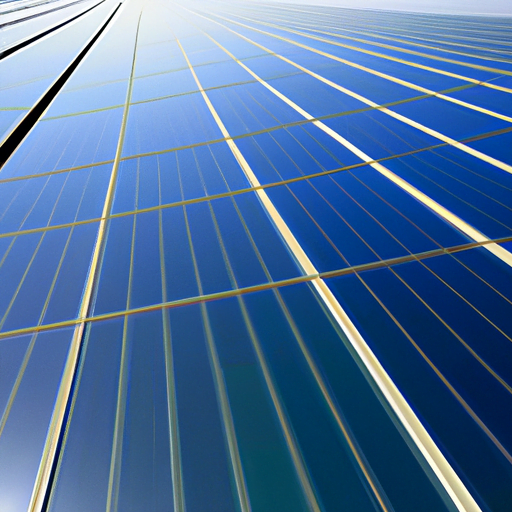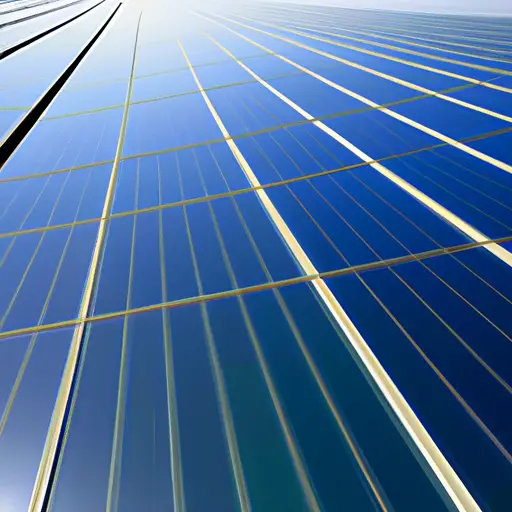So, you’ve decided to go off grid and embrace the renewable energy revolution by installing solar panels on your property. That’s awesome! Now, you might be wondering, how do you protect your solar panels when they’re not in use? After all, you’ve invested time and money into setting up this sustainable energy system, and you want to ensure its longevity and efficiency. In this article, we’ll dive into the different ways you can protect your solar panels and maximize their lifespan.
Firstly, one of the simplest ways to protect your solar panels is to keep them clean. Dust, dirt, and debris can accumulate on the surface, reducing the amount of sunlight that reaches the panels and hindering their performance. Regularly cleaning them with a soft cloth or a non-abrasive sponge will help maintain their efficiency. However, make sure to consult your solar panel manufacturer’s guidelines or contact a professional installer for specific cleaning recommendations.
Second, investing in protective covers or containers can offer an extra layer of defense for your solar panels when they’re not in use. These covers are typically made from durable materials, such as plastic or aluminum, and are designed to shield the panels from harsh weather conditions, dust, and potential physical damage. There are various options available in the market, including custom-fit covers or larger containers where you can store the panels securely.
Lastly, if you’re planning to leave your property for an extended period, it’s crucial to ensure the solar panels are properly shut down. This involves disconnecting the system from the grid and following the manufacturer’s instructions for safely powering off the panels. By doing this, you can protect your panels from voltage surges, lightning strikes, and other electrical issues that may occur during your absence.
In conclusion, protecting your solar panels when they’re not in use is essential for maintaining their efficiency and longevity. Regularly cleaning them, investing in protective covers or containers, and properly shutting down the system when leaving your property are some of the ways you can ensure your solar panels remain in optimal condition. Now, let’s delve deeper into each of these methods and explore additional tips and tricks in the full article. Living off the grid offers many benefits, including energy independence, reduced utility bills, and environmental sustainability. However, it also poses its own set of challenges, such as limited access to public utilities, higher upfront costs, and maintenance and troubleshooting responsibilities. One of the crucial aspects of living off the grid is protecting solar panels when they are not in use. In this article, we will explore the importance of protecting solar panels and discuss various measures you can take to ensure their longevity and efficiency.

Benefits of Living off Grid
Energy independence
Living off the grid means that you are not reliant on public utilities for your energy needs. Instead, you generate your own power through renewable sources such as solar panels. This not only gives you the freedom to choose where your energy comes from but also reduces your dependence on fossil fuels, contributing to a cleaner and more sustainable future.
Reduced utility bills
By generating your own power, you significantly reduce or eliminate your monthly utility bills. Traditional energy sources are subject to price fluctuations and the rising cost of electricity. When you produce your own energy, you are no longer at the mercy of these external factors, allowing you to save money in the long run.
Environmental sustainability
Living off the grid is an environmentally conscious choice. Traditional energy production contributes to pollution and greenhouse gas emissions. By harnessing the power of the sun, you significantly reduce your carbon footprint, helping to combat climate change and preserve the planet for future generations.
Challenges of Living off Grid
Limited access to public utilities
Living off the grid means that you are responsible for providing your own water, heating, and electricity. This can be a challenge in areas where access to public utilities is limited or nonexistent. It requires careful planning and investing in alternative solutions, such as rainwater collection systems, wood-burning stoves, and solar panel installations.
Higher upfront costs
While living off the grid can lead to long-term savings on utility bills, the initial investment can be significant. Properly setting up a off-grid system requires purchasing and installing solar panels, batteries, and inverters, among other components. These upfront costs may deter some individuals from pursuing the off-grid lifestyle.
Maintenance and troubleshooting
Maintaining an off-grid system requires regular inspections and troubleshooting. Solar panels can be susceptible to wear and tear, and it is crucial to identify and address any issues promptly. Additionally, troubleshooting electrical and system malfunctions can be more challenging without the support of a utility infrastructure. This responsibility for maintenance and repairs is an ongoing commitment that accompanies living off the grid.
Importance of Protecting Solar Panels
Solar panels are a valuable investment and need to be protected when not in use. Proper protection ensures their longevity and efficiency, safeguarding your investment and ensuring that you can continue to rely on them for energy generation. There are several reasons why protecting solar panels is of utmost importance.
Prevent damage from weather conditions
Solar panels are designed to withstand various weather conditions, including rain, snow, and hail. However, extreme weather events can still pose a risk. Strong winds, hurricane-force storms, and heavy snowfall can potentially damage or even destroy solar panels. Protecting them with appropriate measures, such as covers or enclosures, can prevent such damage and prolong their lifespan.
Avoid theft and vandalism
Solar panels are an attractive target for thieves due to their high resale value. Additionally, vandalism can also occur, causing irreparable damage to the panels. Implementing security measures, such as surveillance cameras, motion sensor lights, and anti-theft hardware, can help deter potential thieves and vandals, safeguarding your solar panels and investment.
Prolong lifespan and efficiency
Proper protection and maintenance help prolong the lifespan and efficiency of solar panels. Over time, exposure to the elements can cause wear and tear, reducing their effectiveness. Regular cleaning, inspections, and addressing any issues promptly can ensure that your panels continue to operate efficiently, maximizing the energy they produce.
Choosing the Right Protective Measures
Choosing the right protective measures for your solar panels depends on various factors, including their location, surrounding environment, and potential risks. Here are some options to consider.
Covering panels with protective cases
One of the simplest ways to protect solar panels when not in use is to cover them with protective cases or covers. These covers shield the panels from dust, debris, and potential damage caused by the elements. They are easy to install, remove, and provide an additional layer of protection against weather conditions.
Installing security systems
To prevent theft and vandalism, installing security systems can be highly effective. Surveillance cameras positioned strategically around your property can act as a deterrent and provide evidence in case of any incidents. Motion sensor lights also help illuminate the area and alert you to any suspicious activity.
Implementing regular cleaning and maintenance
Regular cleaning and maintenance are essential to ensuring the optimal performance of your solar panels. Removing debris, leaves, and dirt from the panels helps maintain their efficiency and prevents any potential damage. Inspecting for loose connections, signs of wear and tear, and addressing any issues promptly are crucial for the overall health of your off-grid system.

Weather-Related Protection Methods
Using weather-resistant materials
Using weather-resistant materials during the installation of your solar panels can increase their durability and protection against severe weather conditions. Ensure that the system is properly secured using high-quality materials that can withstand strong winds, storms, and heavy snowfall.
Installing adjustable mounts for seasonal adjustments
Adjustable mounts allow you to change the angle and orientation of your solar panels throughout the year. This ensures maximum exposure to sunlight and helps mitigate the effects of variations in weather conditions and seasonal changes. Being able to adjust the angle of the panels can also assist in minimizing potential damage caused by hail or falling debris.
Monitoring weather forecasts for possible risks
Monitoring weather forecasts can help you prepare for any potential risks or extreme weather events. Being aware of upcoming storms, hurricanes, or heavy snowfall allows you to take appropriate protective measures in advance, such as reinforcing panels, securing them with additional anchors, or removing them temporarily.
Preventing Theft and Vandalism
Installing surveillance cameras
Installing surveillance cameras around your property acts as a deterrent and helps in identifying potential thieves or vandals. Visible cameras can discourage criminal activity, offering an extra layer of security for your solar panels.
Implementing motion sensor lights
Motion sensor lights activate when motion is detected, illuminating the area and alerting you to any potential intruders. These lights act as a deterrent, making it less likely for thieves or vandals to target your off-grid system.
Securing panels with anti-theft hardware
Securing your solar panels with anti-theft hardware provides an added layer of protection. Anti-theft bolts or fasteners make it more difficult for thieves to disassemble or remove the panels, significantly reducing the risk of theft.
Importance of Regular Cleaning and Maintenance
Removing debris and leaves
Regularly cleaning your solar panels ensures maximum sunlight absorption and optimal performance. Leaves, bird droppings, and debris can significantly reduce their efficiency. Gently removing any accumulated dirt or debris helps maintain the panels’ effectiveness and prolong their lifespan.
Checking for loose connections
Over time, connections between solar panels and inverters can become loose due to vibrations or extreme weather conditions. Regularly checking for loose connections and tightening them ensures continuous energy production and prevents electrical issues.
Inspecting for signs of wear and tear
Regular inspections allow you to identify any signs of wear and tear, such as cracks, broken glass, or loose frames. Addressing these issues promptly can prevent further damage and ensure the panels’ longevity.
Storing Solar Panels Properly
Cleaning and drying panels before storage
If you need to store your solar panels temporarily, it is essential to clean and dry them thoroughly before storage. This prevents the growth of mold or damage caused by moisture. A gentle cleaning solution and soft cloth can be used to clean the panels, followed by air drying to remove any remaining moisture.
Using climate-controlled storage units
When storing solar panels for an extended period, it is advisable to use climate-controlled storage units. Extreme temperature fluctuations can damage the panels, affecting their overall performance. Climate-controlled storage units ensure a stable environment, protecting the panels from extreme temperatures and humidity.
Avoiding direct contact with concrete or hard surfaces
When storing solar panels, it is important to avoid direct contact with concrete or hard surfaces. Placing the panels on a soft, non-abrasive surface or using protective covers prevents the risk of scratches or damage to the glass surfaces.
Conclusion
Protecting solar panels when not in use is crucial to ensure their longevity and efficiency. By choosing the right protective measures, such as covering panels, implementing security systems, and regular maintenance, one can prevent damage from weather conditions, theft, and vandalism. Additionally, proper storage techniques also play a significant role in preserving solar panels for future use. Whether you are living off the grid or simply looking to protect your solar investment, taking the necessary precautions ensures that your solar panels continue to generate clean and renewable energy for many years to come.




